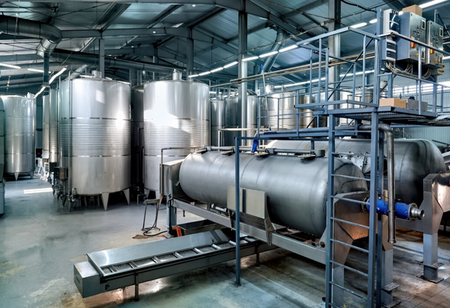PNG: The Government made Compressed Biogas mixing essential in CNG
By Consultants Review Team
 The National Biofuels Coordination Committee has announced the phased mandatory blending of compressed biogas (CBG) in compressed natural gas (CNG) for transportation and PNG (domestic gas) segments for city gas distribution.
The National Biofuels Coordination Committee has announced the phased mandatory blending of compressed biogas (CBG) in compressed natural gas (CNG) for transportation and PNG (domestic gas) segments for city gas distribution.
The CBG Blending Obligation (CBO) will boost the production and consumption of compressed biogas throughout the country. The government intends to increase CBG use and adoption, according to Hardeep Singh Puri, Minister of Petroleum & Natural Gas and Housing & Urban Affairs.
According to the petroleum ministry, the CBO's main goals are to boost demand for CBG in the CGD sector, import substitution for Liquefied Natural Gas (LNG), currency savings, promotion of a circular economy, and assist in meeting the net zero emission target. Puri estimates that this will attract roughly 37,500 crore in investment and assist the creation of 750 CBG projects by 2028-29.
The ministry also cited that CBO will be voluntary until 2024-2025, then mandatory blending duty will begin in FY26. CBO will continue to account for 1%, 3%, and 4% of total CNG/PNG usage in FY26, FY27, and FY28, respectively. CBO will be 5% from 2028-29 onwards. According to the ministry, a Central Repository Body (CRB) will supervise and implement the blending mission based on operational rules established by the minister of PNG.
According to the ministry, discussions have also taken place to promote the manufacture of ethanol from maize with all stakeholders, particularly the Departments of Agriculture and Food and Public Distribution (DFPD), in order to make it a key feedstock in the next few years.
The government has pushed back its objective of 20% ethanol blending in petrol from 2030 to 2025. In addition, the Centre has diversified the feed in terms of sugar, maize, food waste, broken food grains, and bamboo. The Centre met its 10% ethanol blending objective five months early, in November 2022. In India, ethanol blending has increased by more than eightfold. It has risen from 1.53% in 2014 to about 11.5% in March 2023, resulting in lower import bills and decreased carbon emissions.
"It was discussed that there has been an increase in maize cultivation area, yield per hectare, and production in recent years." This ministry has begun work in collaboration with the Department of Agriculture and the DFPD to further develop high starch-yielding varieties, improve the quality of maize DDGS (Dried Distillers Grain Solids) by removing aflatoxins, and expedite the registration of new high starch seed types. The ministry also announced the launch of maize training programs for distillers in collaboration with seed companies.
Another significant declaration was made in order to promote biofuels throughout the country. The group established initial indicative blending percentage targets for Sustainable Aviation Fuel (SAF/Bio-ATF). Based on feedback from stakeholders such as MoCA, Niti Aayog, OMCs, and others, as well as the capacities of upcoming Sustainable Aviation Fuel plants in the country and projected ATF sales, the government approved a 1% SAF indicative blending target in ATF by 2027 for international flights and a 2% SAF blending target in 2028 for international flights.




